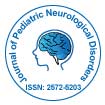Mini Review 天美传媒 Access
The Increase of AMP-activated Protein Kinase during Physical Activitiescan Reduce Symptoms of Autistic Children
Bakouie F1*, Darvishi A2, Bahrami S2 and Gharibzadeh S1
1Institute for Cognitive and Brain Sciences (ICBS), Shahid Beheshti University, Iran
2Student’s Scientific Research Center (SSRC), Tehran University of Medical Sciences, Tehran, Iran
- *Corresponding Author:
- Bakouie F
Institute for Cognitive and Brain Sciences (ICBS)
Shahid Beheshti University, Iran
Tel: (009821) 2403041
Email: f_bakouie@sbu.ac.ir;
Received date: October 26, 2015 Accepted date: December 08, 2015 Published date: December 15, 2015
Citation: Bakouie F (2015) The Increase of AMP-activated Protein Kinase during Physical Activities can Reduce Symptoms of Autistic Children. J Pediatr Neurosci 1:102. doi: 10.4172/2572-5203.1000102
Copyright: © 2015 Bakouie F, et al. This is an open-access article distributed under the terms of the Creative Commons Attribution License, which permits unrestricted use, distribution, and reproduction in any medium, provided the original author and source are credited.
Visit for more related articles at Journal of Pediatric Neurological Disorders
Abstract
Autism spectrum disorders (ASD) are one of the neurodevelopmental disorders. About one-five of children diagnosed with ASD have regression autism. Adenosine monophosphate (AMP)-activated protein kinase (AMPK) is precisely control the balance of ATP metabolism in mitochondria, the organelle that show dysfunction in regressive autism. Studies have shown that this sensor kinase can be effective in axonal growth. It has been suggested that exercise is one of the most powerful factors that increase mitochondrial activity and the amount of AMPK. Above the mentioned, we hypothesized that the physical activities can increase mitochondrial activity and reduce the symptoms of autistic children.
Keywords
Autism spectrum disorders; Adenosine monophosphate; Threonine protein kinase
Description
Autism spectrum disorders (ASD) are one of the neurodevelopmental disorders. About one-five of children diagnosed with ASD have regression autism-a normal development until age 1 and 2 which followed by a regression that significantly characterized by an impaired language abilities [1]. Some of the children with ASD have co morbidities such as mitochondrial dysfunction which is more common in children with regressive autism [2].
Mitochondria are organelles that produce adenosine triphosphate (ATP), the energy porter in cells. The balance between production of ATP and its consumption is precisely controlled by adenosine monophosphate (AMP)-activated protein kinase (AMPK), the serine/ threonine protein kinase that works as a key regulator and sensor [3].
In autistic patients as regards abnormality in axonal-path finding [4], studies have shown that this sensor kinase can be effective in axonal growth [5].
It has been suggested that exercise is one of the most powerful factors that increase mitochondrial activity [6] and the amount of AMPK [7]. Some studies indicate physical exercises for improving performance of patients. There are studies which showed that physical activities can reduce stereotypic behaviors in both autistic and mentally retarded adults [8].
It is also suggested that the best time for intervention and treatment of children with ASD is an age between 2 and 4 years [9]. On the other hand, dominance of playing video games among children, which result to the lack of exercise can worsening this situation.
Above the mentioned, we hypothesized that the physical activities such as aerobic controlled exercises and age specific sports may be helpful in order to increase mitochondrial activity. In this regard we suppose that increase in mitochondrial activity will lead to improve the brain development and therefore reduce the symptoms of autistic children.
References
- Lainhart JE, Ozonoff S, Coon H, Krasny L, Dinh E, et al. (2002)
- Frye RE, Rossignol DA (2011)
- Sanz P (2008)
- Courchesne E (2004)
- Amato S, Man HY (2012)
- Reznick RM, Shulman GI (2006) The role of AMP-activated protein kinase in mitochondrial biogenesis. The Journal of Physiology 574:33-39.
- Richter EA, Ruderman NB (2009)
- Elliot RO, Dobbin AR (1994)
- Courchesne E, Pierce K, Schumann C, Redcay E, Joseph A (2007)
Share This Article
Relevant Topics
- Behavioral Psychology
- Chiari malformation
- Chronic Traumatic Encephalopathy
- Congenital Brain Defects
- Duchenne Muscular Dystrophy
- Epilepsy and Seizures
- Genetic and Metabolic Disorders
- Genetic Epilepsies
- Headaches and Migraines
- Movement Disorders
- Neonatal encephalopathy
- Neurodevelopmental Disorders
- Neurogenetic Disorders
- Neurological Complications of AIDS
- Neuromuscular Disease
- Pediatric Brain Tumour
- Pediatric Sleep Disorders
- Stroke and Perinatal Injuries
Recommended Journals
Article Tools
Article Usage
- Total views: 11037
- [From(publication date):
December-2015 - Jan 11, 2025] - Breakdown by view type
- HTML page views : 10291
- PDF downloads : 746
